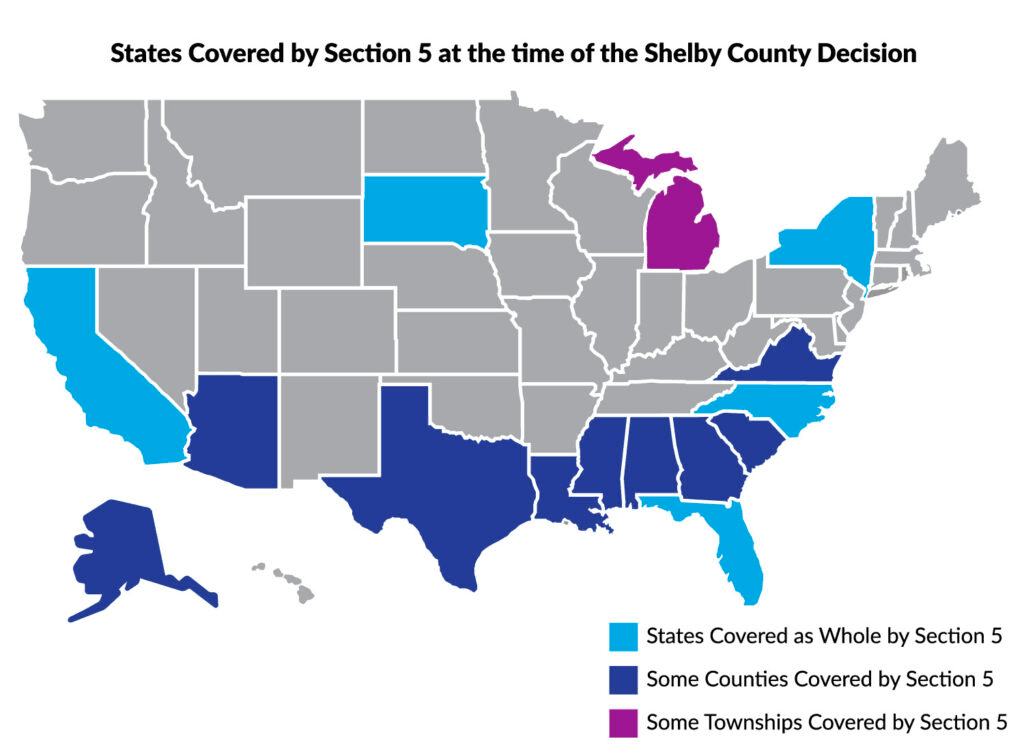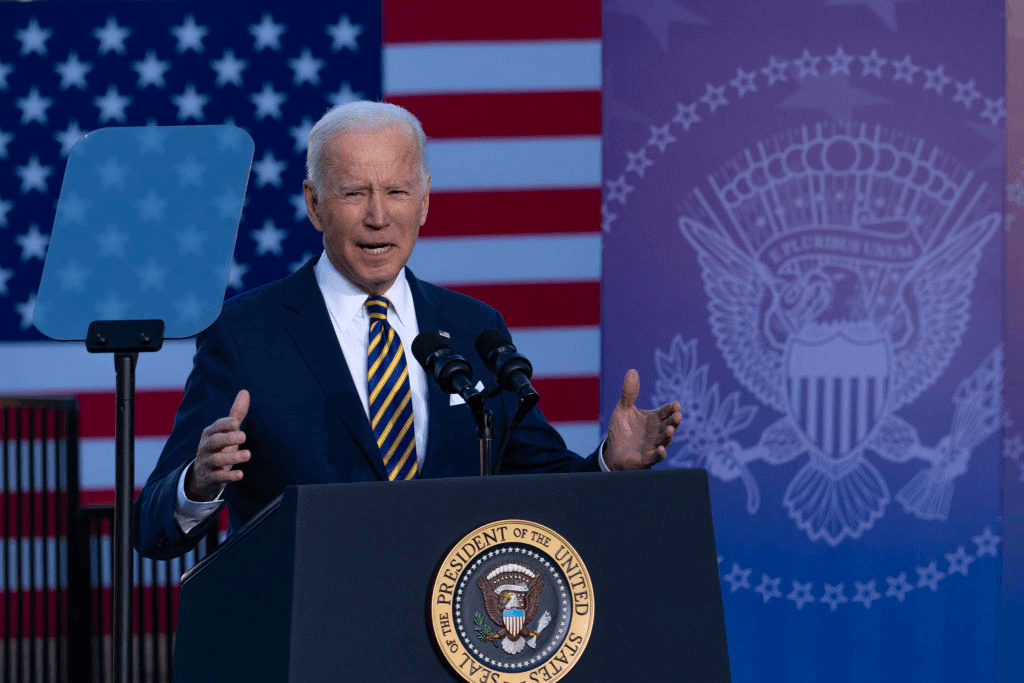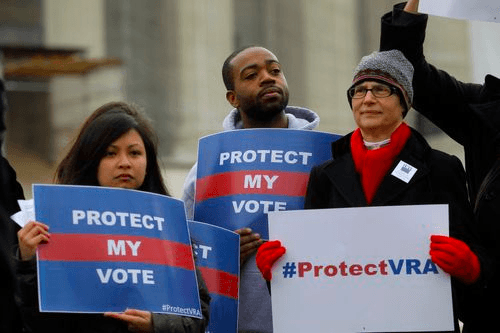Shelby County v. Holder
In the 2013 case Shelby County v. Holder, the Supreme Court issued a landmark decision drastically changing the way states changed their election laws.
Section 5 of the VRA required legislatures to prove that any change affecting voting did not have a discriminatory purpose or potential effect. This process, known as preclearance, applied to new redistricting plans and was a tool the federal government used to protect minority voters in states with a history of racial gerrymandering. In recent years though, the provision has generated much controversy, as affected states argued that these rules were outdated and unnecessarily burdened states that had worked hard to overcome their discriminatory history. In its 2013 decision inShelby County v. Holder, the Supreme Court ruled that the formula outlining which districts had to seek preclearance under Section 4 was unconstitutional and effectively stripped Section 5 of the VRA of its power. Some activists have criticized the Holder decision as a massive blow to voting rights in the United States, saying it paved the way for the restrictive voter laws seen across the country today.

Sister District
Current Events

Voting Legislation

